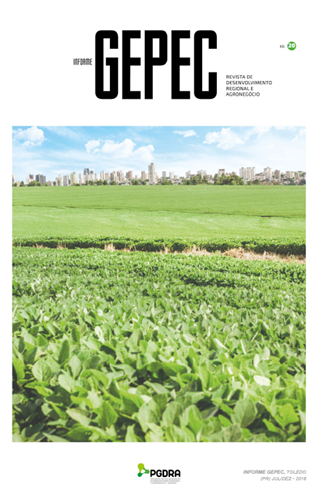How transfer of knowledge can be linked to productivity and competitiveness of the firm - theoretical considerations and case study
DOI:
https://doi.org/10.48075/igepec.v20i2.16210Palavras-chave:
Knowledge transfer, Productivity, Competitiveness, CultureResumo
The most important contribution management needs to make in the 21st century is to increase the productivity of knowledge work and knowledge workers. This is the point of departure for this article where we first give a theoretical discussion about how firms can utilize knowledge to improve competitiveness. This builds on the assumption that the firm’s utilization of tangible resources depends on how they are combined and applied, which is in turn, a function of the firm’s knowledge. In the empirical part of the article, we analyze how these processes take place in assembly line operations and support functions. The main result is that although knowledge itself is important, it is essential to develop an understanding of human resource developments on all levels of the managerial system of the firm and ensure that the managers are able to transfer knowledge between groups.Downloads
Downloads
Publicado
Como Citar
Edição
Seção
Licença
Aviso de Direito Autoral Creative Commons / Creative Commons Copyright Notice/ Aviso de derechos de autor de Creative Commons
Política para Periódicos de Acesso Livre / Policy for Open Access Journals/ Política para revistas de acceso abierto
Autores que publicam nesta revista concordam com os seguintes termos:
1. Autores mantém os direitos autorais e concedem à revista o direito de primeira publicação, com o trabalho simultaneamente licenciado sob a Licença Creative Commons Attribution - http://creativecommons.org/licenses/by-nc-sa/4.0 -que permite o compartilhamento do trabalho com reconhecimento da autoria e publicação inicial nesta revista.
2. Autores têm autorização para assumir contratos adicionais separadamente, para distribuição não-exclusiva da versão do trabalho publicada nesta revista (ex.: publicar em repositório institucional ou como capítulo de livro), com reconhecimento de autoria e publicação inicial nesta revista.
3. Autores têm permissão e são estimulados a publicar e distribuir seu trabalho online (ex.: em repositórios institucionais ou na sua página pessoal) a qualquer ponto antes ou durante o processo editorial, já que isso pode gerar alterações produtivas, bem como aumentar o impacto e a citação do trabalho publicado (Veja O Efeito do Acesso Livre).
Licença Creative Commons
Esta obra está licenciada com uma Licença Creative Commons Atribuição-NãoComercial-CompartilhaIgual 4.0 Internacional, o que permite compartilhar, copiar, distribuir, exibir, reproduzir, a totalidade ou partes desde que não tenha objetivo comercial e sejam citados os autores e a fonte.
--------------
Authors who publish in this journal agree to the following terms:
1. Authors retain the copyright and grant the journal the right of first publication, with the work simultaneously licensed under the Creative Commons Attribution License that allows the sharing of the work with recognition of authorship and initial publication in this journal.
2. Authors are authorized to assume additional contracts separately, for non-exclusive distribution of the version of the work published in this journal (e.g., to publish in an institutional repository or as a book chapter), with recognition of authorship and initial publication in this journal.
3. Authors are allowed and encouraged to publish and distribute their work online (e.g. in institutional repositories or on their personal page) at any point before or during the editorial process, as this can generate productive changes, as well as increase the impact and citation of the published work (see The Effect of Free Access).
Creative Commons License
This work is licensed under a Creative Commons Attribution-Non-Commercial-SharingEqual 4.0 International License, which allows you to share, copy, distribute, display, reproduce, all or parts as long as it has no commercial purpose and the authors and the source are cited.
--------
Los autores que publican en esta revista aceptan los siguientes términos:
1. Los autores conservan los derechos de autor y conceden a la revista el derecho de primera publicación, con la obra licenciada simultáneamente bajo la Licencia de Atribución Creative Commons que permite compartir la obra con reconocimiento de autoría y publicación inicial en esta revista.
2. Los autores están autorizados a asumir contratos adicionales por separado, para la distribución no exclusiva de la versión del trabajo publicado en esta revista (por ejemplo, para publicar en un repositorio institucional o como un capítulo de libro), con el reconocimiento de la autoría y la publicación inicial en esta revista.
3. Se permite y alenta a los autores a publicar y distribuir su trabajo en línea (por ejemplo, en repositorios institucionales o en su página personal) en cualquier momento antes o durante el proceso editorial, ya que esto puede generar cambios productivos, así como aumentar el impacto y la cita de la obra publicada (ver El Efecto del Libre Acceso).
Licencia Creative Commons
Este trabajo está licenciado bajo una licencia Creative Commons Attribution-Non-Commercial-SharingEqual 4.0 International License, que le permite compartir, copiar, distribuir, mostrar, reproducir, todo o partes siempre y cuando no tenga fines comerciales y los autores y la fuente sean citados.











